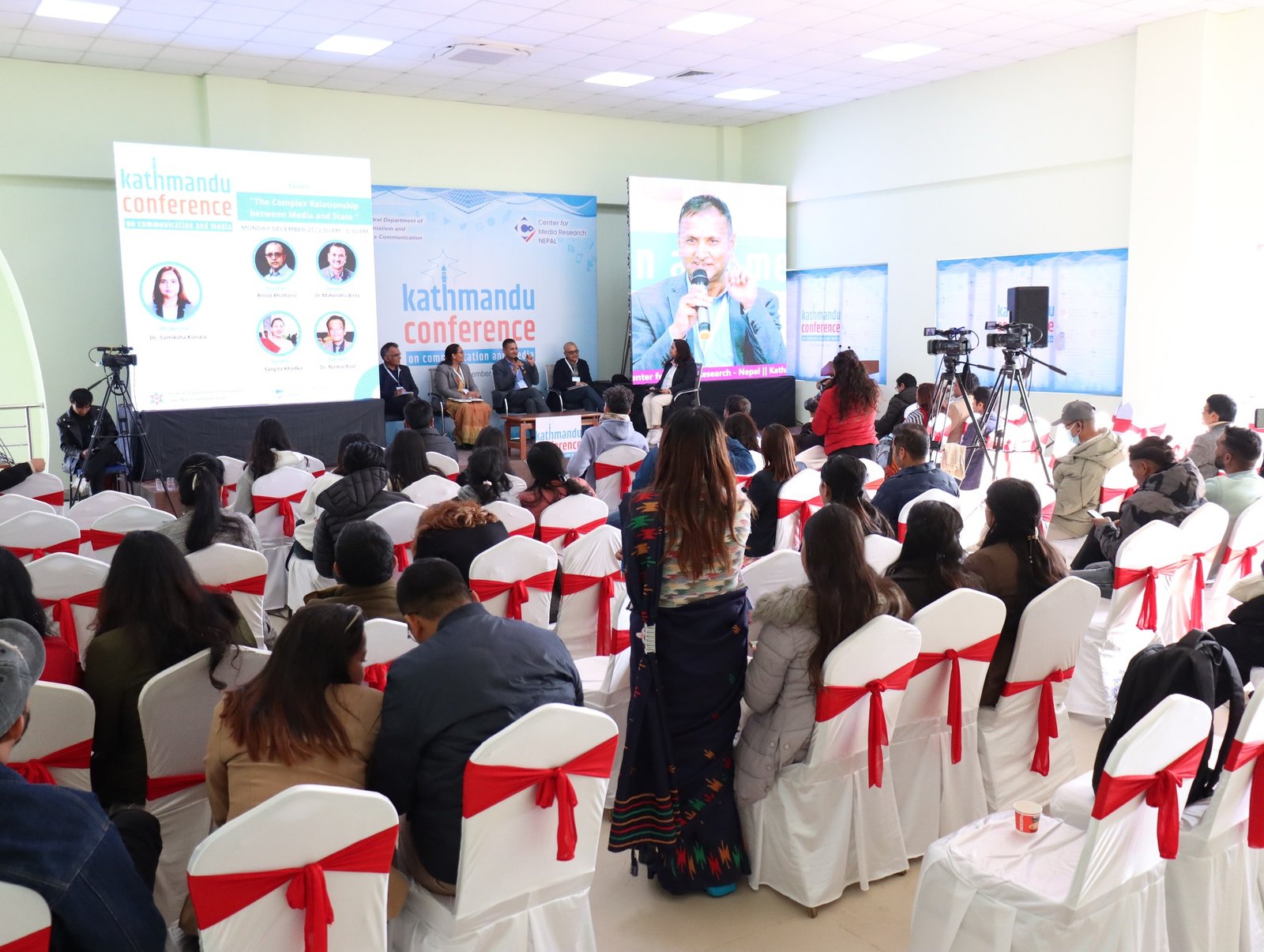On December 24, 2024, the Center for Media Research – Nepal (CMR-Nepal) organized a panel discussion on “The Complex Relationship between Media and State in Nepal” during the Kathmandu Conference on Communication and Media in Kathmandu. Here is the summary report:
Moderator: Dr. Samiksha Koirala (Assistant Professor, North South University, Bangladesh)
Panelists: Binod Bhattarai (expert), Dr. Mahendra Bista (chairperson, Public Service Broadcasting), Sangita Khadka (chairperson, Minimum Wage Fixation Committee) and Dr. Nirmal Rijal (expert)
Summary of Panel 5 – The Complex Relationship between Media and State
The fifth panel of the conference, “The Complex Relationship between Media and State,” examined the evolving dynamics between the media, government, and external forces in an age of rapid technological change and market-driven content. The discussion focused on the challenges media outlets face in preserving their independence, ensuring accountability, and navigating the growing influence of corporate and political powers. Panelists stressed the need for ethical journalism and strong legal frameworks to uphold democratic values.
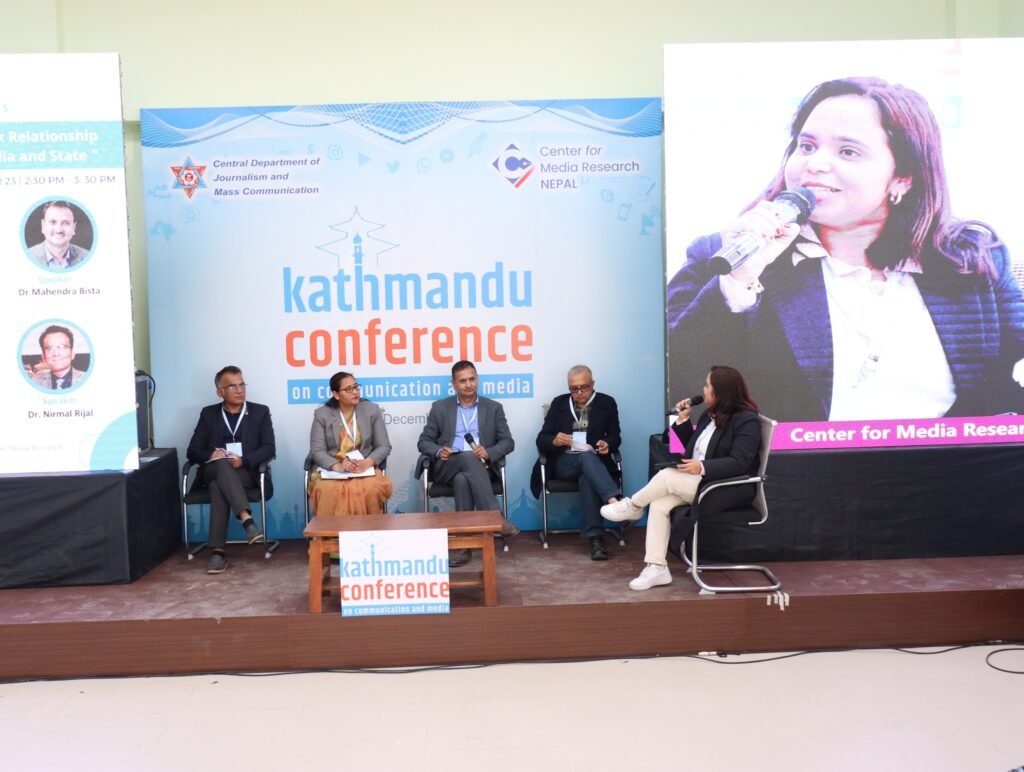
The panel explored how democracy is shifting and how media operates within it. Key issues discussed included market pressures, corporate and political influence, and the need for transparency in editorial policies. The panelists emphasized the importance of balancing financial sustainability with ethical reporting. They also addressed how technology affects journalism, bringing both opportunities and risks, including misinformation and algorithm-driven content bias.
The need for an independent media regulator was highlighted to enforce ethical standards and ensure accountability. The panelists underscored media’s responsibility in questioning power and providing fair, balanced reporting in the digital public sphere. Ultimately, the conversation reaffirmed the essential role of independent journalism and effective regulation in maintaining democratic governance.
Statements by Panelists
Dr. Mahendra Bista
“The government must actively support the media, not just by passing laws but also by ensuring editorial freedom and financial stability,” said Dr. Bista. “Journalism is the foundation of democracy, but it cannot thrive without proper funding.”
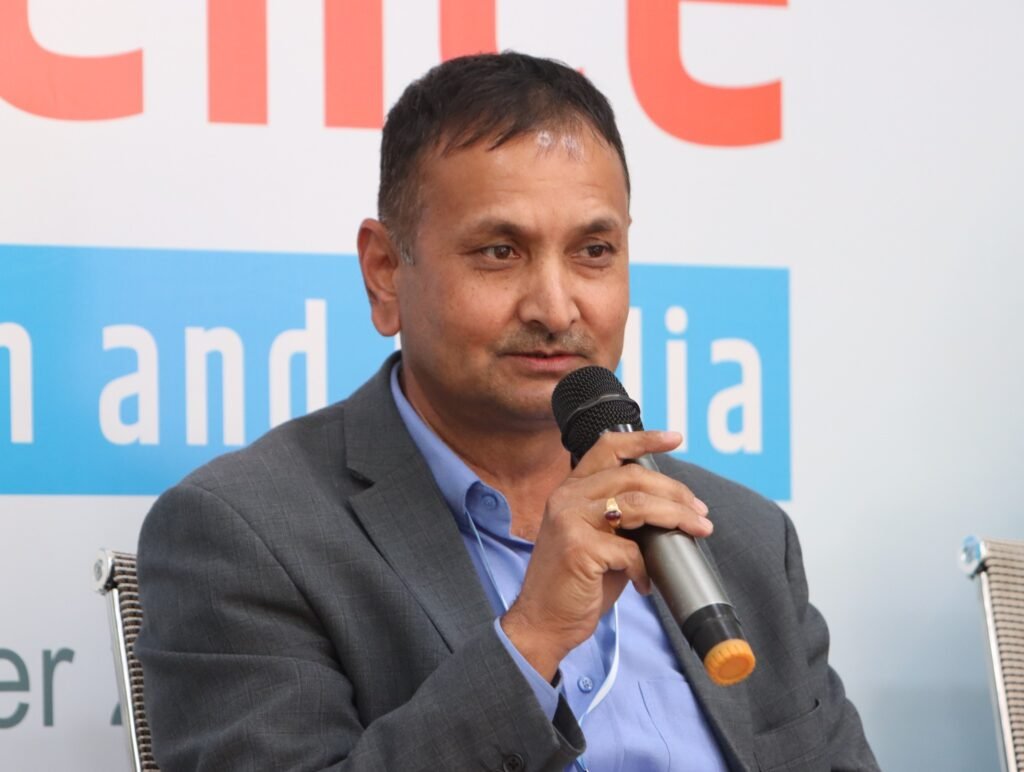
He stressed the importance of content analysis to uphold journalistic professionalism and called for editorial independence supported by data analytics from journalism websites. Both the government and media sector must take responsibility for protecting journalists from growing threats.
“We need government investment in media sustainability, and the sector must focus on ethical, innovative practices. Self-censorship exists—but freedom is the essence of democracy,” he concluded.
Sangita Khadka
Khadka focused on the working conditions of those entering the media industry. “New entrants often face low and inequitable pay, making it difficult to sustain themselves,” she said. “This is a serious issue that needs legal and policy intervention.”
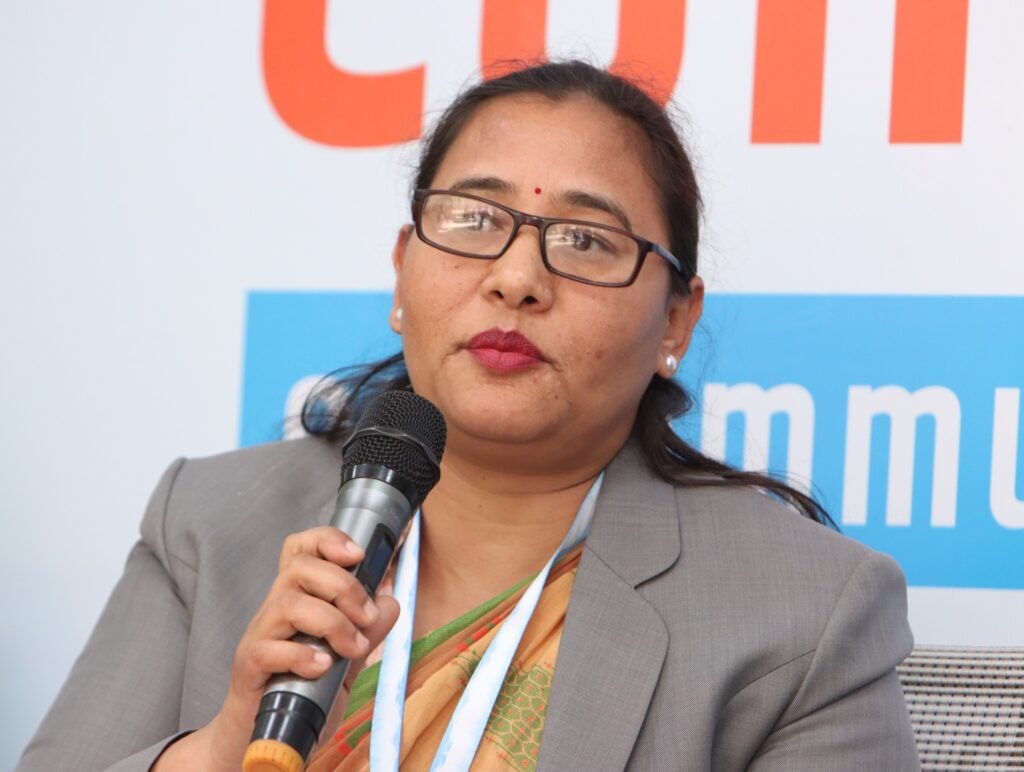
She called for legislation to ensure fair compensation and uphold the dignity and rights of media professionals. “This is not just about justice; it’s about protecting the welfare of those working in this field.”
Dr. Nirmal Rijal
“The media too often portrays the government as the sole source of information—this is a problematic narrative,” said Dr. Rijal. “It undermines media independence and limits diverse perspectives.”
He welcomed the draft of the new broadcasting law but emphasized that it must promote freedom of expression while holding media to ethical standards.
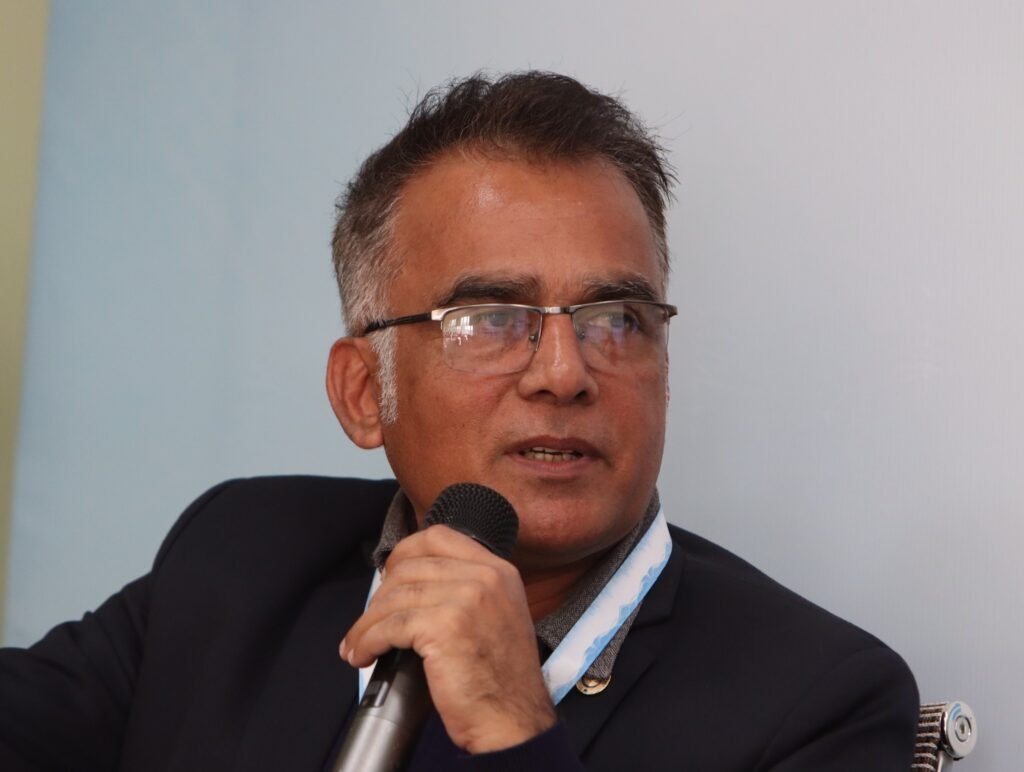
“Without proper checks, media can become a tool of commercial or political interests rather than a platform for truth and public service,” he warned. He highlighted the growing commercialization of media, where profit motives often outweigh ethical considerations.
“When markets dominate unchecked, information quality suffers, and journalism loses its public value,” he said.
Binod Bhattarai
“We are witnessing media capture,” Bhattarai asserted. “When the media is captured, political shifts follow.” He emphasized that democracy is in transition, and it is essential that the media remain responsible and fact-based.
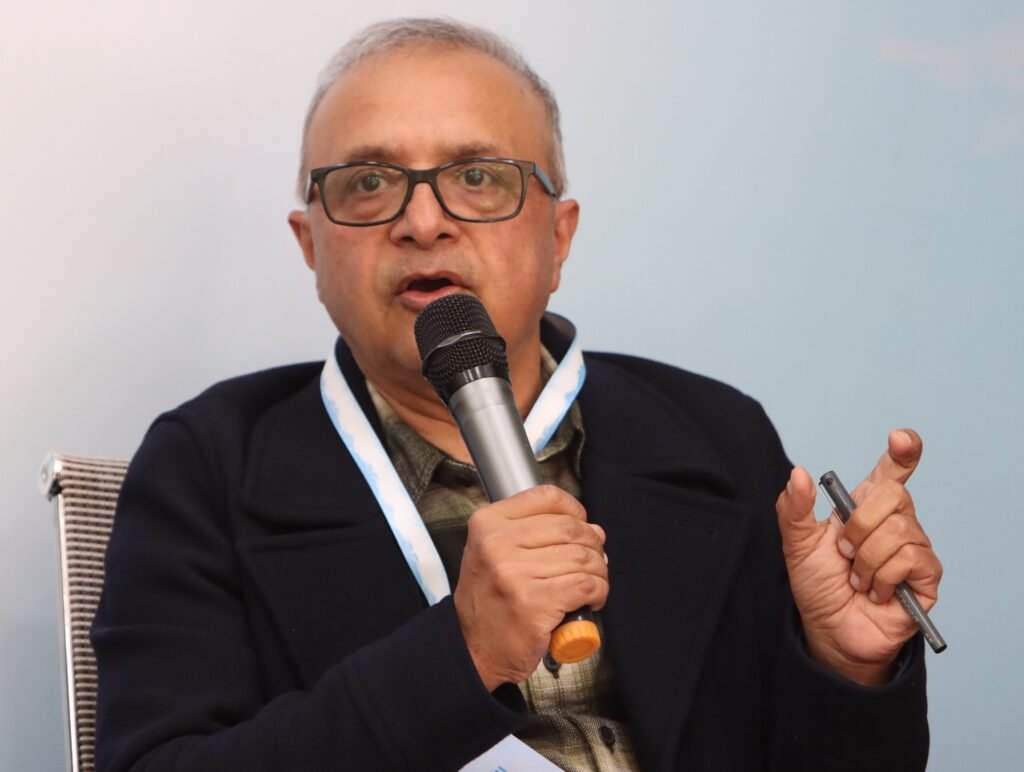
“Our democracy depends on a free and accountable press. Upholding these principles is not optional—it is fundamental.”
Question & Answer Session
Susan Bhattarai (Master’s Student, Journalism):
“Could you elaborate on the main challenges media faces due to technological change in today’s context?”
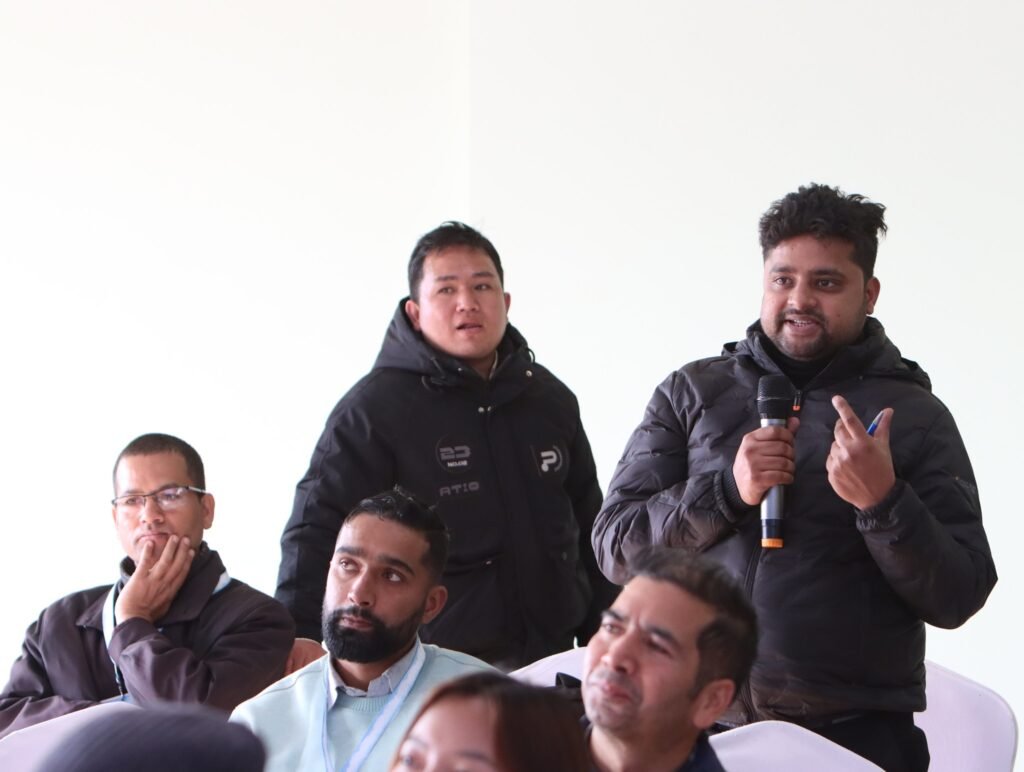
Sangita Khadka’s Response:
“We don’t oppose technology—but we must adapt to its developments and demands.”
Umesh Pokhrel:
“We talk about watchdog journalism and skill development. How has digital technology changed the landscape?”
Dr. Mahendra Bista’s Response:
“Government measures for media accountability depend on the public’s trust. To use technology effectively and enter mainstream media, we must adapt to the transformations taking place.”
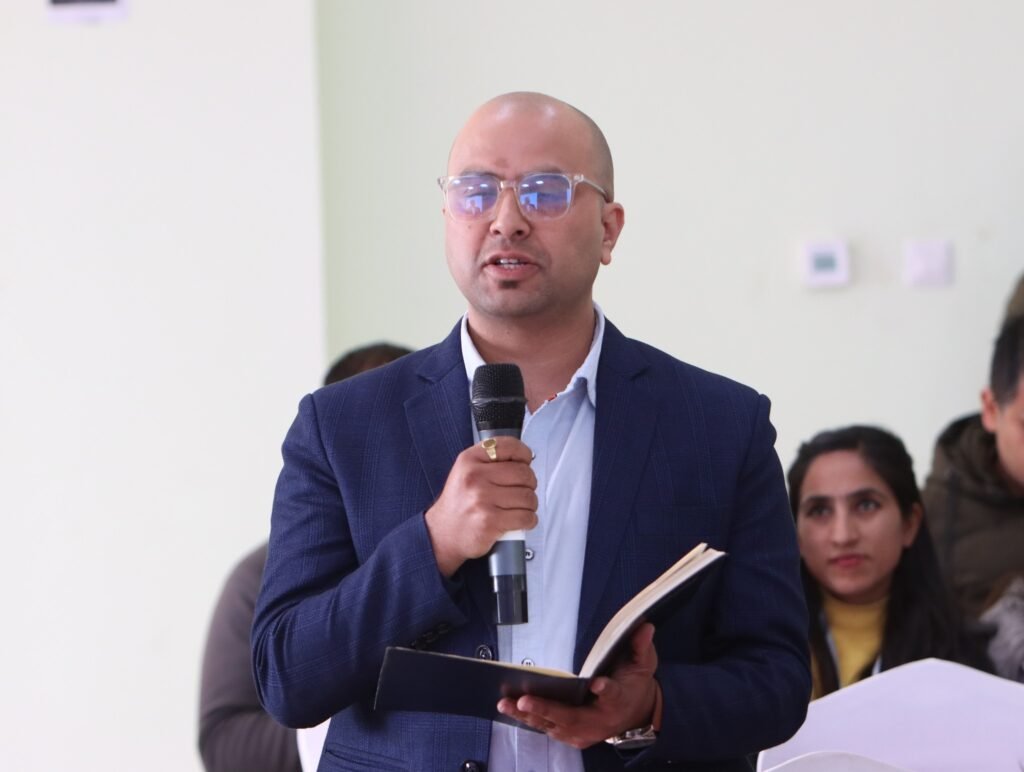
Moderator’s Remarks – Dr. Samiksha Koirala
Dr. Koirala opened the discussion by addressing the state’s involvement in media regulation. “The state plays a critical role in regulating the media, and it’s essential to examine how this regulation functions,” she said. She posed a foundational question: “When the government invests in media, what are the implications for independence and objectivity?”
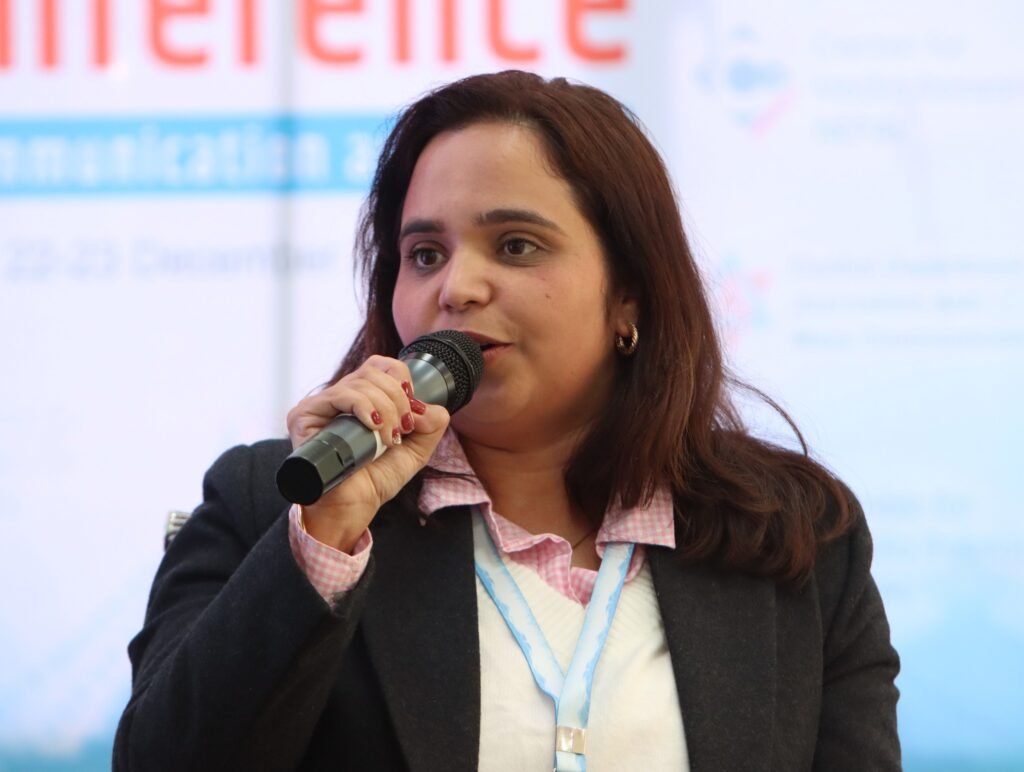
Dr. Koirala also raised the issue of market influence on media sustainability. “How do market forces shape the revenue streams of journalists, and what are the pros and cons of these dynamics?” she asked. She highlighted the financial pressures faced by journalists and how these might influence editorial choices. Her thoughtful framing enabled a robust discussion about the challenges and responsibilities media must navigate within today’s complex regulatory and economic landscape.
